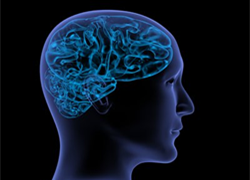Researchers demonstrate impact of lucid dreaming
Date 8.08.2017
8.08.2017
Being trained to have lucid dreams can affect how aware you are whilst awake, suggests new research from the University of Northampton.
After a twelve week programme, volunteers who were able to induce lucid dreams – where the dreamer is aware they are dreaming – became more adept at perceiving subtle changes or objects in their visual field.
Wearable tech claiming to encourage lucid dreaming is set to become the next big craze when it hits the shops later this year.
According to lead researcher, Dr David Saunders, this observed change in perception suggests that lucid dream experiences may impact on the way we think, solve problems, and relate to others in waking life.
“These findings suggest people who are trained to lucid dream become more ‘field independent’ in their waking life.
“People high in this characteristic tend to be more self-sufficient, less reliant on colleagues support when completing tasks, have a much stronger internal compass, and tend to perform better in formal educational programmes than field dependent individuals.”
Published in the journal Dreaming, this study first asked 35 participants to undertake three psychological tests for characteristics thought to be correlated with lucid dreaming occurrence .
One goal of the study was to identify if these characteristics pre-disposed people to become lucid dreamers – or whether observations from previous studies which identified the correlations were actually a result of lucid dreaming.
The 23 women and 12 men – who had at best rarely had lucid dreams prior to the study – were then given a set of five regular ‘exercises’ in an attempt to induce lucid dreaming over a three month training period.
The five exercises for inducing lucid dreaming included daily ‘reality checking’; repeating a mantra and visualising lucid dreaming as they were nodding off; and also waking early, thinking about dreaming, for a period and then returning to bed.
At the end of the three months, the participants sat the three tests again.
Results from two of the tests – the first measuring one’s need for- and enjoyment of mental stimulation, the other measuring the extent to which a person believes they control their own destiny – showed no change in both those who had and those who had not experienced a lucid dream.
However, the third test of ‘Field Dependency’* showed a clear change, with the scores of those who had successfully induced lucid dreams increasing by an average of 13%. The scores of those who hadn’t induced lucidity showed no change.
“An understanding of the way our dreaming mind interacts with and influences our conscious experience has a variety of potential applications, particularly when considering lucid dreams- from creative problem-solving to enhancing motor skills for athletes and dancers, or as a form of motor-rehabilitation or even a cure for severe nightmares,” said Dr Saunders.
*More about the Field Independence test:
This test requires participants to momentarily view a series of simple shapes. They are then presented a more complex shape, and asked to identify one of the simple shapes hidden inside the more complex one within a given time limit.
Participants can view the simple shapes as often as they would like, but never see the simple and complex shape together at the same time.
Some individuals find this task incredibly easy; these individuals are known as ‘field independents’. Others find the task considerably more difficult, taking much longer or never solving the task, these individuals are known as ‘field dependents’.
These terms refer to the way an individual perceives their environment, as a unified whole or as a series of constituent parts they can break down into smaller elements respectively. This ability has been long associated in the psychological literature with many other characteristics of an individuals behaviour and cognition.